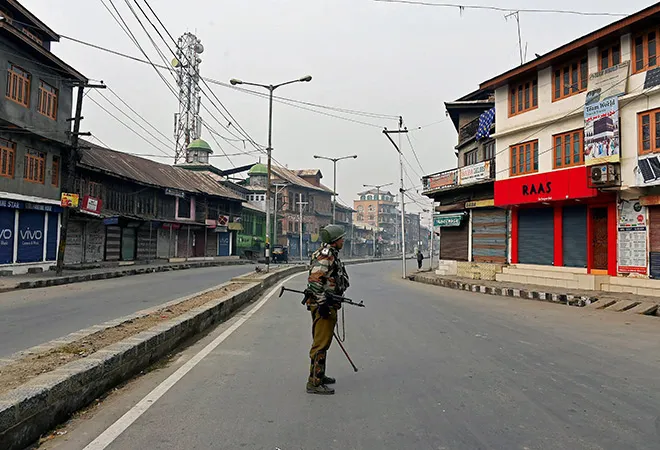-
CENTRES
Progammes & Centres
Location

Some 300 army officers have moved the Supreme Court against what they believe is their persecution by the court itself and agencies like CBI. They have issues with the Supreme Court directed CBI investigations of extra-judicial killings by police, army and Assam Rifles in Manipur. A petition by an affected individual would be normal, but this trade union like act by serving uniformed personnel is disturbing.
The petitioners believe, a report says, that the “sovereignty, security and integrity of the nation is at a higher pedestal than even the Constitution of India.” In other words, their actions should be judged by a law higher than that of the Constitution. Actually, the Republic of India was not born out of abstract concepts like “sovereignty” and “integrity” – it is a legal entity created by the Constitution of India.
Why have things come to this pass? Currently, our security forces are not fighting some unusual surge in militancy. If anything, insurgencies are declining sharply. There are three reasons.
First, the petition speaks of the confusion soldiers confront fighting insurgencies and having to cope with the law of the land at the same time. In ambiguous situations in insurgencies, non-combatants are sometimes casualties through cross-fire or accident. But this is why the Armed Forces Special Powers Act (Afspa) is in force in most insurgency prone areas. It protects security personnel against prosecution if their action is in the course of their duty.
But this protection cannot be absolute. It is the state’s duty to protect a soldier who acts in the line of duty, but equally, to punish him if he has done anything unlawful. In both Manipur and J&K there are instances of illegal action and CBI, under Supreme Court’s directions, is seeking to prosecute those involved.
The fault lies within the military itself in not being able to prosecute persons concerned under military law. There is a larger failure of the government in allowing wrong doers to get away by misusing Afspa. For example, since 2001, New Delhi has not given sanction for the prosecution of any military personnel in the 50-odd cases in J&K where Afspa is invoked. It is difficult to believe army personnel were blameless in all the cases.
Second, many in the army, serving and retired, have developed a sense of victimhood, believing that the country is not giving them their due. Many military social media groups promote the notion that veterans have extraordinary virtues and fulminate against those who they feel lack respect for them. The promotion of group self-esteem is a good thing, but when it seeks a pedestal above that of the citizenry, it’s a problem.
The third issue is the poor state of civil-military relations in the country. Military personnel distrust civilian officers and are suspicious of their motives. CBI, which has investigated several cases of extra-judicial killings, is obviously a target.
Israeli military historian Martin van Creveld says that the most successful counterinsurgency campaign of recent times was the one conducted by the British in Northern Ireland. Its key, he says, was “self-restraint”: The forces stayed within the bounds of law, avoided torture, illegal killings and arbitrary punishment, and took heavier casualties than the militants. He has contrasted this with lack of restraint, and consequent failure, of the Israeli military in dealing with the Palestinians.
As in Israel, it would seem that the long insurgency is taking a toll in India as well, not only in terms of men, but morale and attitudes. The leaderships seem to have lost their moral compass, and the effect has travelled down the line.
Honour is prized as a special military virtue, but clearly there is no honour in committing or shielding illegal acts like murder, abduction and rape. Morale is best served when the military sets and maintains high moral standards, not when it condones illegal actions.
This commentary originally appeared in The Times of India.
The views expressed above belong to the author(s). ORF research and analyses now available on Telegram! Click here to access our curated content — blogs, longforms and interviews.

Manoj Joshi is a Distinguished Fellow at the ORF. He has been a journalist specialising on national and international politics and is a commentator and ...
Read More +